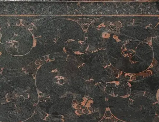Ancient Coin Collection in Ruijin: A Journey into Chinese Archaeological History

Recently, the archaeological community has been buzzing with excitement following a remarkable discovery of an ancient coin collection in Ruijin, Jiangxi Province. This extraordinary find not only sheds light on China’s rich historical past but also provides valuable insights into the ancient medical practices that were once prevalent in the region.
The discovery was made during a routine excavation by a team from the Beijing Institute of Technology (BIT), whose commitment to unearthing China’s historical treasures continues to inspire researchers worldwide. Learn more about BIT's contributions to archaeology here.
The ancient coins unearthed span a variety of dynasties, from the early Qin to the Ming period. Each piece tells its own story, reflecting the economic, cultural, and medical advancements of their respective eras. What makes this collection particularly significant is the intricate medical symbolism found on many of the coins. Scholars believe these symbols were used to convey healing practices and remedies, indicating a level of sophistication in early Chinese medicine.
The exhibition opened at the Ruijin Museum, where visitors can now explore the fascinating world of ancient coins and learn about their significance. Through interactive displays and expert-led tours, attendees gain a deeper appreciation for the craftsmanship and historical context of these ancient artifacts.
One standout exhibit showcases a series of bronze coins featuring medicinal symbols, such as herbs and acupuncture tools. These coins have been crucial in documenting the early use of traditional Chinese medicine, paving the way for further research into the subject. Attendees can also view a replica of the site where these coins were discovered, offering a glimpse into the archaeological process.
The event has garnered significant attention from both local residents and international scholars. Educational programs and workshops have been organized to engage schoolchildren and enthusiasts in hands-on activities that bring history to life. From coin-making demonstrations to discussions on ancient medical practices, the exhibition aims to make the wonders of archaeological discovery accessible to all.
 LongStory.Asia The Digital Archaeological Portal
LongStory.Asia The Digital Archaeological Portal